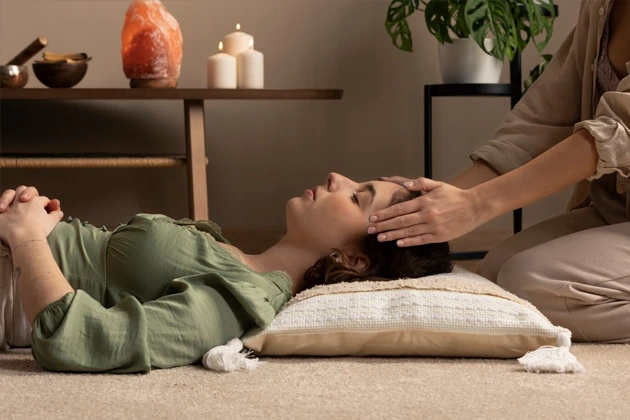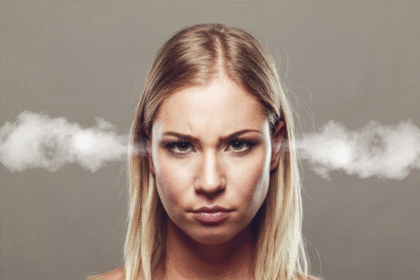Stress is one of the most prevailing psychological conditions across the globe. According to the latest Mental Health Report of 2019 by the World Health Organization, around 970 million people throughout the globe are living with a mental disorder, among which anxiety and depression are the most common. A Mental Health Foundation report of 2024 has shown that 74% of the world’s population is finding it difficult to cope with their stress.
These statistics are an eye-opener for the global population as they reflect on the worsening scenario of stress prevalence and stress management throughout the world. As per WHO’s “Comprehensive Mental Health Action Plan 2013-2030,” we need to transform our attitudes, approaches, and actions to promote and protect mental health and to offer assistance and care for people grappling with mental health conditions like anxiety, stress, burnout, and more. Effective management of mental health disorders requires a holistic anxiety management approach.
A Holistic Anxiety Management: People’s Proclivity for Alternative Stress-Relief Therapies
We can find cognitive and behavioral therapies doing wonders in relieving stress and helping people suffering from burnout to recover while having a glance at the stress-management approaches globally. However, despite the effectiveness of these psychological therapies, access to mental health care is poor in many countries. Also, managing stress at a primary level has become more salient than ever as stress has become the most common form of mental health condition observed in the majority of the world’s population.
In the last two decades, managing stress through alternative therapies has gained popularity gradually. Now, while we stand at the early stage of 2025, the significance of alternative stress-relieving therapies has increased exponentially. As mental health awareness approaches continue to promote anxiety and burnout management, people are adopting alternative stress management therapies like meditation and more to lead healthier lives both at personal and professional levels. From anxiety management to burnout recovery therapy, these alternative approaches are treating stress quite effectively.
Decoding Anxiety and Burnout
Stress driven by anxiety and burnout can often be hard to cope with, worsening one’s mental health to a great extent. Before knowing the alternatives to stress relief, let us learn what is anxiety and burnout and how they contribute to stress.
Anxiety
Anxiety is a feeling of fear and uneasiness triggered by a negative experience or situation. Anxiety is a stress response and contributes to stress heightening. People suffering from anxiety disorder experience persistent anxiety and stress that interferes with their daily lives. Anxiety disorders include- panic, phobias, and general episodes of anxiety.
Burnout
According to psychological viewpoints, burnout is a psychological state of exhaustion after prolonged stress. A burnt-out individual feels mentally and physically drained and may face difficulty carrying out daily activities. This stress-driven mental health condition amplifies stress levels, making the situation worse for the sufferer.
Taming Stress: Alternative Therapies to Cope with Anxiety and Burnout
Coping with these two mental health conditions can be ensured with a holistic anxiety management plan that addresses stress and crafts a comprehensive burnout recovery therapy. A holistic stress management includes the combined treatment approaches of conventional stress management therapies and alternative stress-relief therapies. Below are some alternative therapies that can help overcome less intense stress and, when coupled with traditional stress-management techniques, can also assist in dealing with worsened cases of anxiety and burnout.
-
Meditation and Mindfulness-Based Therapies
Mediation and mindfulness-based therapies have proven to be effective in reducing stress. The ancient practice of meditation helps relax the nervous system through awareness. Although meditation is considered more of a religious practice, the process contributes to helping individuals to a relaxed state of mind as they try to center their focus on positive energy.
Whether you are an anxiety-prone person or just feeling exhausted due to excessive stress, meditating daily can help you control your negative thoughts and infuse positive vibes into your daily life.
Mindfulness practices like yoga are a form of exercise that makes individuals more aware of their body and mind. Yoga is a more physical approach to mindfulness that prepares the body for mindful meditation. These practices aim to calm the mind and help release negative energy from one’s body and mind. For a serene ambiance that supports your mindfulness journey, explore Flowerz for thoughtfully curated products designed to elevate your space. Both yoga and meditation can lower anxiety and serve as a burnout recovery therapy for people dealing with mental exertion.
-
A Healthy Diet Plan
A holistic anxiety management plan prioritizes diet as a significant contributor to stress relief. Diet is directly linked to the human immune system, which in turn affects brain functioning. A healthy diet plan can strengthen one’s immune system and provide extra energy to cope with stressful situations. Foods having omega-3 fats help regulate our stress hormone, cortisol. A well-regulated cortisol level can help in keeping a happy and positive mood, helping reduce stress significantly.
-
Massaging
Body-relaxing massages help reduce stress. It is one of the most preferred burnout recovery therapy. A therapeutic massage can facilitate relaxation, lower blood pressure, and alleviate pain as it targets reducing stress and burnout. You are more relaxed when you feel rejuvenated and therapeutic massages do the same.
-
Acupuncture
In holistic anxiety management therapy, acupuncture is often included as a therapeutic practice that stimulates the nervous and immune systems. During this process, tiny needles are inserted into the skin at specific points to release stress, treat insomnia, alleviate chronic pain, and help reduce digestive disorders.
-
Relaxation Exercises
Physical exercise has long been identified to be a way of infusing positive energy into the body and relaxing stressful minds. Relaxation exercises help manage anxiety and burnout through breathing and mind-relaxing postures.Coupling burnout recovery therapy with behavioral and psychological therapies, psychologists or psychiatrists often address anxiety and burnout-related issues effectively. In this article by The CEO Views, we intend to highlight the small yet powerful benefits of alternative therapies in crafting a holistic anxiety management plan that not only reduces stress but also promotes mental well-being.










